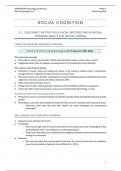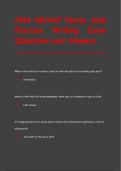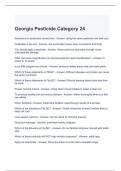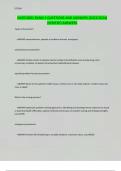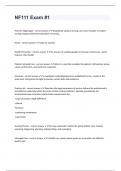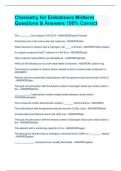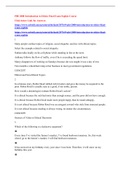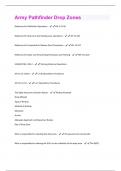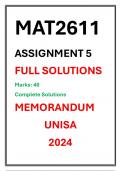Samenvatting
Summary Social Contagion Notes for BSc Psychology: Psychology and Society
- Vak
- Instelling
- Boek
Complete revision and summary notes for Social Contagion for BSc Psychology: Psychology and Society Module. Written by a straight A* King's College London student set for a 1st. Well organised and in order. Includes diagrams and full reference section and collated information from class, textb...
[Meer zien]
